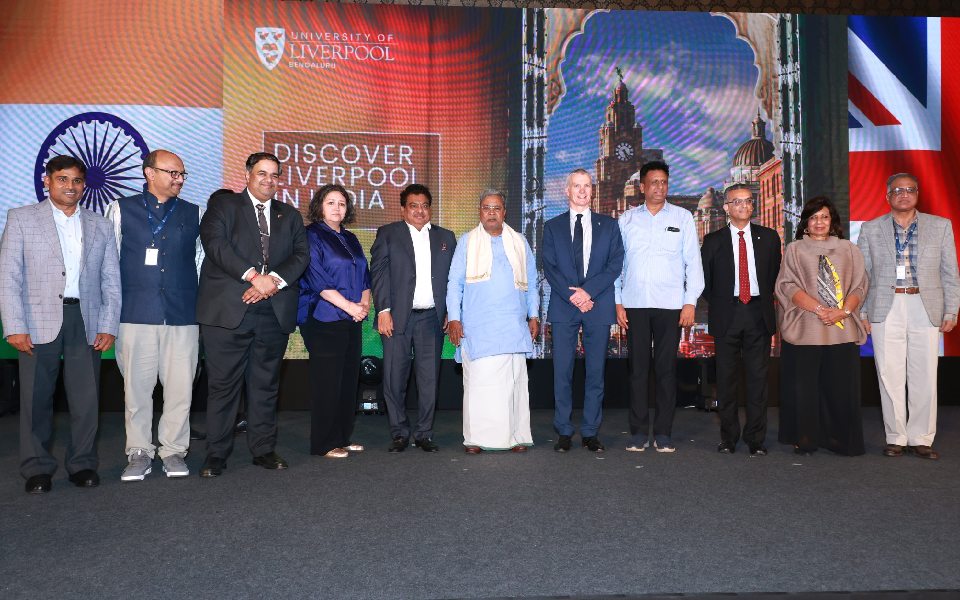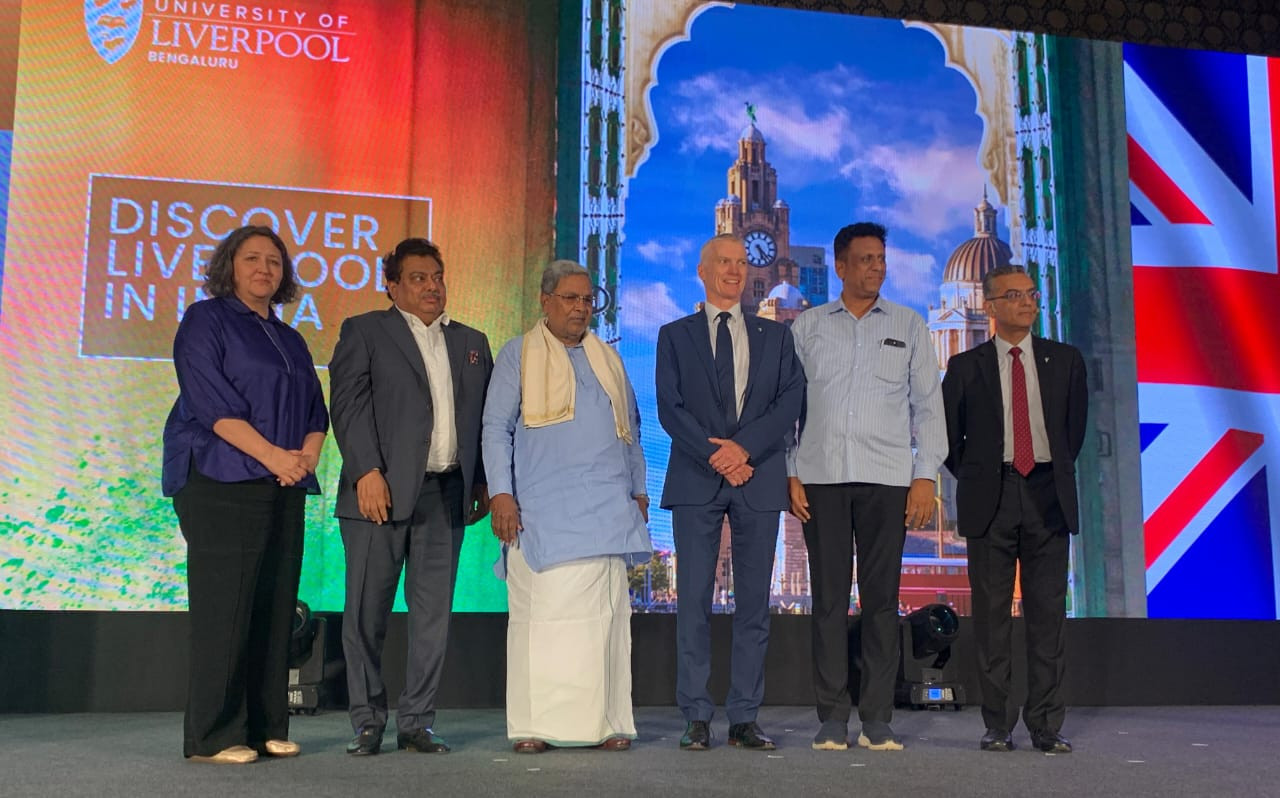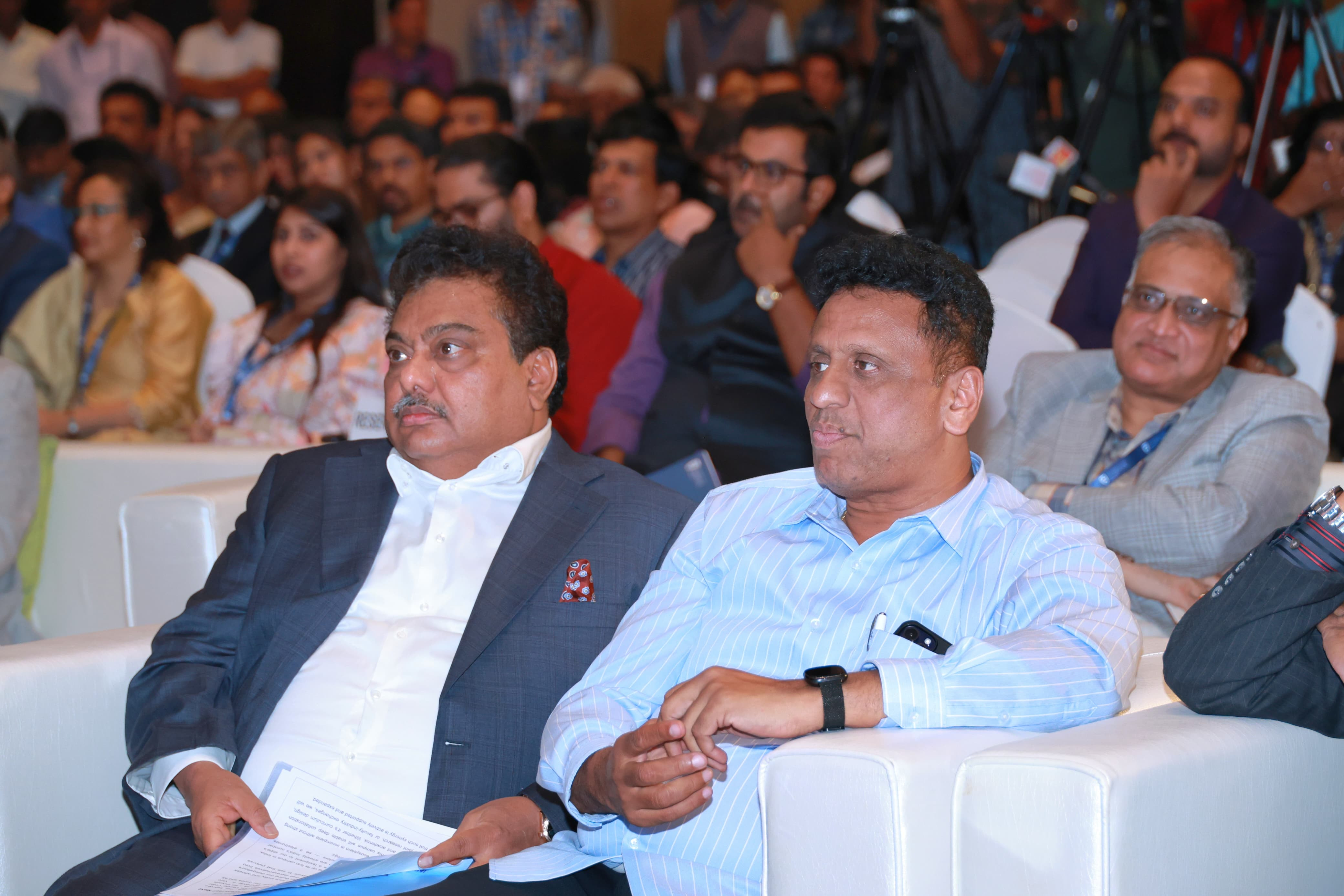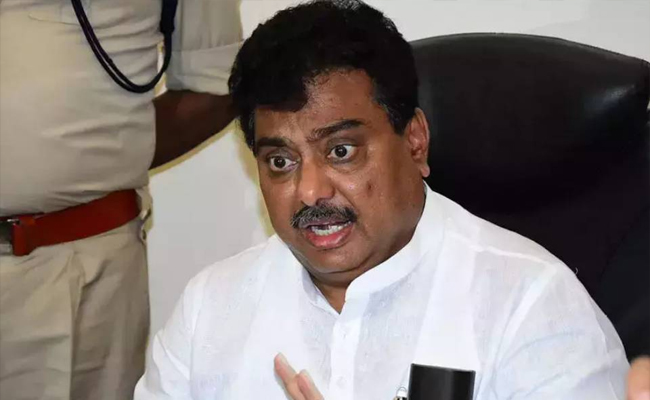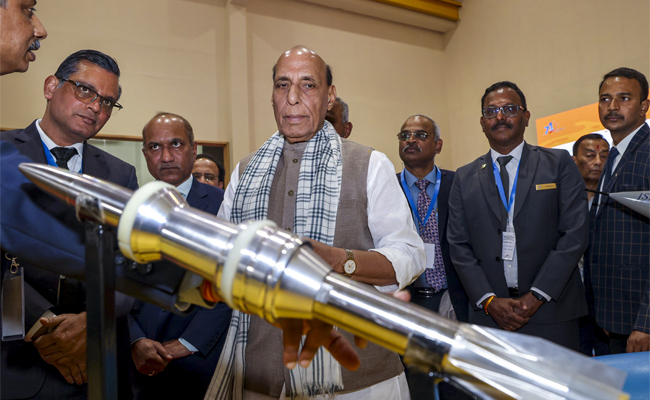Bengaluru: The University of Liverpool, a prominent member of the UK’s prestigious Russell Group, has officially announced plans to establish its first overseas campus in Bengaluru by 2026. The announcement was made during a high-profile event attended by Karnataka Chief Minister Siddaramaiah, Minister for Large and Medium Industries and Infrastructure Development M. B. Patil, Higher Education Minister M. C. Sudhakar, and Health and Family Welfare Minister Dinesh Gundu Rao, all of whom expressed strong support for the initiative.
The event also witnessed the forging of a strategic partnership between the University of Liverpool and Bengaluru-headquartered IT firm Wipro. This collaboration is aimed at promoting mutual research, innovation, and skill development, solidifying the university’s commitment to industry-academic synergy in Karnataka.
The proposed campus will be rooted in the University of Liverpool’s internationally recognised academic standards and research-driven culture. In its initial phase, the campus will offer programmes in Business Management, Accounting and Finance, Computer Science, Biomedical Sciences, and Game Design, the latter being offered for the first time by a UK university campus in India. Additional disciplines are expected to be introduced in subsequent phases.
Welcoming the university's expansion into Karnataka, Chief Minister Siddaramaiah stated, “Karnataka has always been at the forefront of education and innovation. The University of Liverpool’s decision to set up its first foreign campus in Bengaluru reinforces our status as a global knowledge destination. We welcome them wholeheartedly and are committed to extending all support to make this venture a grand success.”
M. B. Patil, Minister for Large and Medium Industries and Infrastructure Development, noted, “The University of Liverpool choosing Karnataka for its first overseas campus reflects our state’s growing global stature as a hub for both industry and intellect. This collaboration will drive deeper ties between academia and sectors like electronics, aerospace, and biotechnology, through joint research, internships, and curriculum design. It will also benefit MSMEs and startups by opening access to world-class mentorship and innovation platforms. I invite the University to explore KWIN City, our upcoming innovation hub, as a base for such partnerships. This is not just a milestone, it’s a strategic alliance to co-create the industries and talent of the future.”
British Deputy High Commissioner in Bengaluru, Chandru Iyer, underscored the importance of the venture within the broader UK-India bilateral framework. “The UK and India have made a commitment to refresh and deepen our partnership to deliver even more for both countries. Our expanded partnership will deliver iconic, forward-looking collaborations in diverse areas such as AI and semiconductors, higher education campuses, and green energy initiatives. The announcement of Liverpool University opening a campus in Bengaluru is both evidence and a celebration of the UK-India partnership,” he said.
Iyer further highlighted the UK-India Free Trade Agreement and the Technology Security Initiative announced in July 2024, which aims to unlock investment in emerging technologies such as telecom innovation. He emphasized that these efforts align with the UK government’s goals of growing the economy and improving living standards.
The University of Liverpool has had a longstanding association with Karnataka, including a 20-year research collaboration with the National Institute of Mental Health and Neurosciences (NIMHANS), which has played a pivotal role in shaping global vaccine policies and reportedly saved over 200,000 lives. Other key partnerships include collaborations with the Indian Institute of Science, Bengaluru, and corporate entities like Hindustan Unilever.
Vice-Chancellor of the University of Liverpool, Tim Jones, expressed pride in the expansion.
“We are proud to take this significant step in our long-standing relationship with India by opening a world-class campus in Bengaluru. The state of Karnataka’s reputation as a knowledge and technology powerhouse makes it an ideal home for the University’s first global campus. We are committed to delivering transformative education and research in partnership with local communities, institutions and industries.”
As preparations for the new campus continue, the university is also exploring broader partnerships with Indian enterprises and global organisations to drive innovation, entrepreneurship, and upskilling. These initiatives are expected to create high-impact opportunities for both domestic and international students.
With its Bengaluru campus scheduled to be operational by 2026, the University of Liverpool is set to offer globally recognised UK education in India, deepen academic-industry engagement, and contribute significantly to Karnataka’s vision of becoming an international hub for learning and innovation.
Let the Truth be known. If you read VB and like VB, please be a VB Supporter and Help us deliver the Truth to one and all.
New Delhi: A visit by the US Ambassador to India, Sergio Gor, to Chandigarh on Monday has triggered sharp criticism from opposition leaders and social media users, raising questions about national security and foreign policy.
On X, Ambassador Gor announced his visit, writing, “Just landed in Chandigarh. Looking forward to visiting the Western Command of the Indian Army.”
Just landed in Chandigarh. Looking forward to visiting the Western Command of the Indian Army
— Ambassador Sergio Gor (@USAmbIndia) February 16, 2026
Soon after, opposition voices questioned the broader implications of the visit. Congress Kerala, in a post, commented, “Why so much panic? We’ve already seen Pakistan's ISI getting access to Pathankot Airbase with this government's blessings. Didn't they say then ‘Modi ne kiya ho to kuch soch samajh kar kiya hoga?’ Compared to that, this is very small.”
Why so much panic? We’ve already seen Pakistan's ISI getting access to Pathankot Airbase with this government's blessings.
— Congress Kerala (@INCKerala) February 16, 2026
Didn't they say then "Modi ne kiya ho to kuch soch samajh kar kiya hoga?"
Compared to that, this is very small. pic.twitter.com/gNNuAGQBPC
Shiv Sena (UBT) leader Priyanka Chaturvedi also weighed in, writing, “Since India’s national strategic interests are now tied to what US wants India to do, this visit seems to sync with that.”
She further added, “India’s history will remember the de-escalation announcement between India and Pak was announced on social media by the US President before Indians got to know from their own government. US Ambassador is doing the job for his nation, who is doing for us? The answer is blowing in the wind.”
Since India’s national strategic interests are now tied to what US wants India to do, this visit seems to sync with that. India’s history will remember the de-escalation announcement between India and Pak was announced on social media by the US President before Indians got to… pic.twitter.com/rYMq5NhJHA
— Priyanka Chaturvedi🇮🇳 (@priyankac19) February 16, 2026
The visit comes against the backdrop of the growing US-India defence partnership.
Writer and political analyst @rajuparulekar commented on ‘X’, “East India Company is back!”
“Is it allowed for an ambassador to visit any army unit in india?” asked another user.
Several X users expressed concerns over the appropriateness of the visit.
One asked, “Is it allowed for an ambassador to visit any army unit in India?” Another wrote, “Why an ambassador visiting our army places? To talk to Chandigarh lobby for F-35?”
Why an ambassador visiting our army places ? To talk to chandigarh lobby for f-35 ??
— Rohan Sagar (@RohanSagar03) February 16, 2026
“We have completely sold Indian sovereignty. Rothschild the evil Bankers will now control NSE. Modi sold Bharat Mata to Trump . And now American imperialist is visiting our army command . Scary,” wrote another user.
“The Indian Army isn’t part of geopolitics, so why is he interested in visiting there?,” opined another.
The Indian Army isn’t part of geopolitics, so why is he interested in visiting there?
— Aditya Pratap Singh (@Adi_IIMCIAN) February 16, 2026
On Sunday, Gor welcomed Admiral Samuel Paparo, Commander of the United States Indo-Pacific Command (INDOPACOM), highlighting efforts to expand the growing US-India defence partnership.
In a post on X, Gor wrote, “Delighted to have @INDOPACOM Commander Admiral Samuel Paparo in India to expand the U.S.-India defense partnership. Now is the time to strengthen vital cooperation between our two nations.”
On Monday, Admiral Samuel J. Paparo Jr visited the headquarters of India’s Western Army Command along with the American envoy Sergio Gor. The delegation was briefed on the formation’s capabilities, its past operations, and future plans.
The American delegation also visited Bengaluru, where they met three start-ups, two in the space sector and one in defence, and participated in an Indo-US conference.

